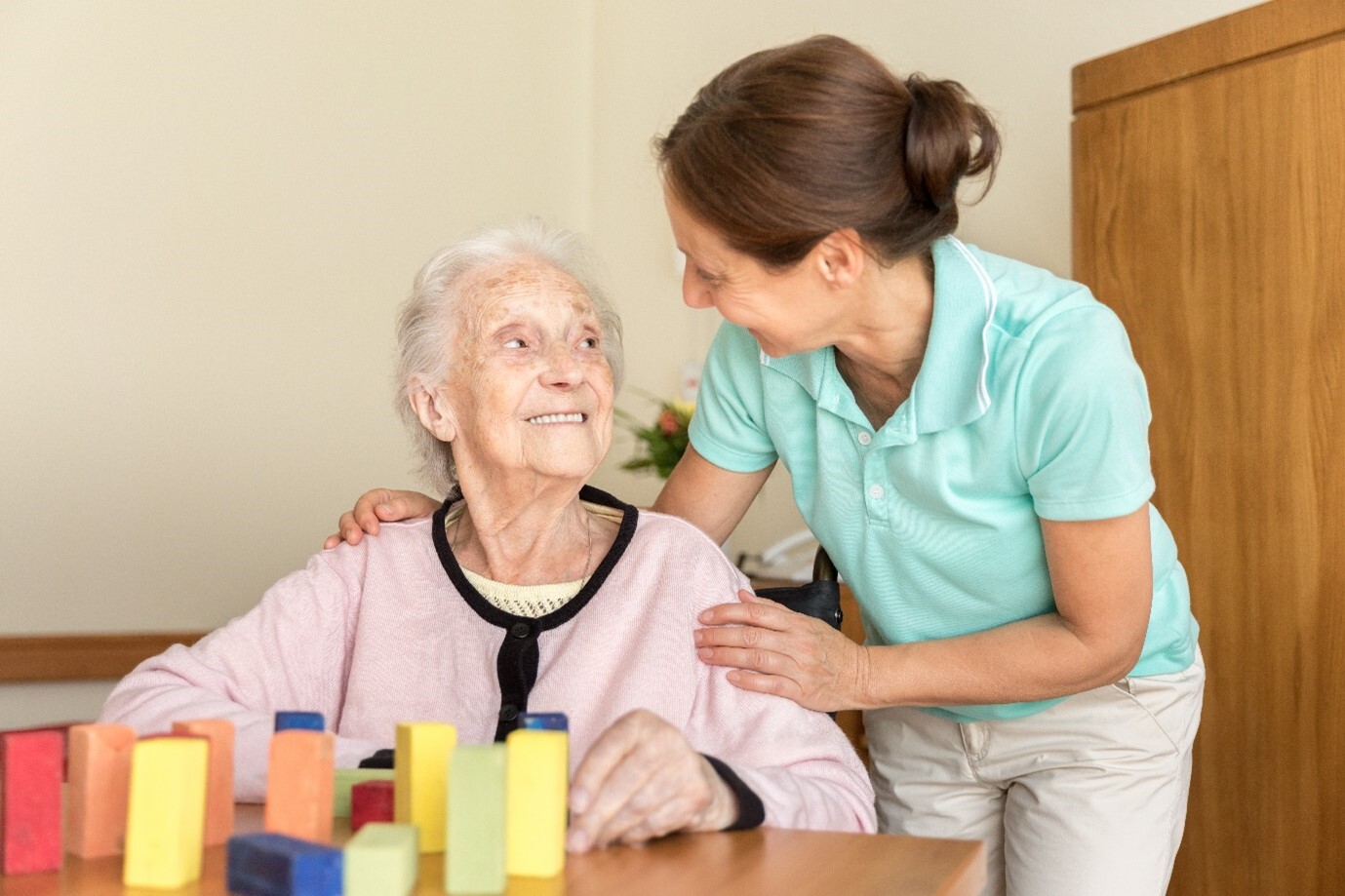What are the early signs and symptoms of dementia?
Receiving a dementia diagnosis can be overwhelming, but early detection often means there are more options to manage the condition and find the right support. Here are some of the early signs and symptoms to look out for.
Scroll to Explore

17 September 2024
Stories
| Home Care
Download this article as a PDF
In this article:
- What are the early signs and symptoms of dementia?
- How can you tell the difference between dementia and normal ageing?
- The benefits of early detection
- What dementia support services can you receive at home?
In 2024, it’s estimated that almost half a million Australians live with dementia and more than 1.6 million people are involved in their care. With no known cure, it is the second leading cause of death in Australia.
The good news is that by diagnosing dementia in its early stages, there are many more options for support and more that can be done to slow down its progression.
This article covers the early signs of dementia, how to tell the difference between these signs and normal ageing, and how at-home support services can make a real difference.
What are the early signs and symptoms of dementia?

However, there are some common symptoms and changed behaviours that could alert you to the presence of dementia:
- Memory loss: While forgetting things occasionally is normal, frequent memory lapses, especially involving recent events, can be an early sign of dementia.
- Difficulty with familiar tasks: Struggling to perform daily tasks – particularly those that were once second nature, like cooking or managing finances, might signal the early signs of dementia.
- Confusion about time and place: You may find yourself often losing track of dates, seasons, or the passage of time, or becoming disorientated in what were once familiar places.
- Finding the right words: Difficulty finding the correct words, or repeating the same phrases, can indicate problems with communication.
- Challenges with abstract thinking: You might be having trouble understanding complex ideas, solving problems, or following instructions.
- Spatial awareness issues: You may find that you can no longer judge distances as you once did, are misinterpreting visual information, or bumping into things more often.
- Misplacing things: We all lose things from time to time, but putting everyday items in unusual places, like finding your phone in the fridge for example, can be concerning.
- Personality or behaviour changes: If you’re experiencing mood swings, or no longer feel motivated to do the things you once enjoyed, this could also point to early stages of dementia.
How can you tell the difference between dementia and normal ageing?

As we grow older, our body changes - including our brain. Mild memory loss is often just part of the normal ageing process. The changes associated with dementia, however, usually prevent a person from being able to complete everyday tasks.
You may also start to notice patterns of behaviour, or several of the early symptoms happening together.
If you are at all in doubt, the best course of action is to pay an initial visit to your GP. They will be able to run a series of tests that rule out other conditions that can cause similar symptoms, such as an infection or a medication’s side effects.
If you do receive a dementia diagnosis, remember that early detection will enable you to put measures in place to help you live life as normally as possible.
The benefits of early detection

The earlier your diagnosis, the more chance you have of being able to manage the condition better over time.
Here are four examples:
1. Planning of future care, living arrangements and legal and financial affairs
Early diagnosis of dementia means that you can be involved in what type of care you receive and when. As well as a wide range of available home care supports, there is also the option for residential care too.
Detecting dementia early also means you can communicate your wishes for your finances - for example, your mortgage, insurance or superannuation, as well as make changes to your will.
2. Receive emotional and psychological support
If you are experiencing emotional or psychological difficulty living with your symptoms, a dementia diagnosis can help you access formal and/or informal supports including free dementia counselling via Dementia Australia.
3. Early support systems and routines
Dementia can often make it more challenging to adapt to change.
With an earlier diagnosis, families and carers can set up new routines early on which will help them to cope better as the disease progresses.
For example, having a care worker lend a helping hand around the house a few times per week could be a shock to someone in the advanced stages of dementia, but if they have been used to this routine for some time, it can be a great help.
Importantly, setting up support measures like these now also significantly reduces the risk of burnout and fatigue for caregivers as time goes on.
4. Opportunities to participate in medical trials
The Australian government has invested heavily in dementia research over the last few decades.
Australian researchers are often looking for study participants to support their work in finding innovative treatments and better care for people affected by dementia. You may
You can learn more about current dementia research projects in Australia, here.
What dementia support services can I receive at home?
Many people are surprised to discover that there is a wide range of government-funded dementia support services available that can be delivered to you in the comfort of your own home. The aim of these services is to promote independence for as long as possible.
Many of these are available through a Home Care Package or the Commonwealth Home Support Program – the two main types of government funding that support older Australians to live well at home.
Here are some of the services you can expect:
Allied health services

This multidisciplinary approach to care is practised by tertiary educated, registered health professionals that include:
- Occupational Therapists
- Physiotherapists
- Exercise physiologists
- Podiatrists
- Dieticians
- Speech Pathologists
The role of allied health professionals in the community is to reduce the need for medical intervention, improve safety and independence, and promote cognitive reablement for people living with dementia.
Occupational therapists, for example, may recommend strategies such as specialised clocks that help with time orientation, colour coding, additional lighting in dark stairways or hallways, adjusted flooring, or suggestions around noise reduction.
Dementia Advisory Service

Some aged care organisations, such as BaptistCare at home, offer a dementia advisory service – a team who can provide specialist dementia care support.
The best time to engage this service is early on. You don’t even need to have a diagnosis of dementia to request their services.
A caring member of the team will visit you in your home and spend time getting to know you and understanding what matters most to you.
They can connect you with local services of assistance, make referrals to allied health professionals as necessary, and help you get the ball rolling with other government funded services.
The dementia advisors can also connect caregivers with various respite care options, such as those discussed in this informative article.
Refresh Retreats

Through our Refresh Retreat program, BaptistCare is committed to providing education and support to caregivers. This 3-day program equips carers with the knowledge, tools, and support needed to care for somebody living with dementia at home.
Personal Care

You may find it beneficial to have a care worker visit you in your home several times per week. They can support you to keep up with your personal care routines, such as showering, dressing, or medication schedule.
Personal care can also support with transportation to appointments, grocery shopping, and meal preparation.
Learn more about receiving personal care at home here.
Dementia care services at home with BaptistCare
BaptistCare at home is one of Australia’s largest and most trusted providers of home care services for seniors.
For 80 years, we’ve been delivering loving, respectful, and reliable care to people across NSW, ACT, and WA.
If you would like to learn more about BaptistCare’s home care services, our friendly team is here to help.
Please call 1300 275 227 (Monday to Friday, from 8:00am to 6:00pm) or email us at ask@baptistcare.org.au.